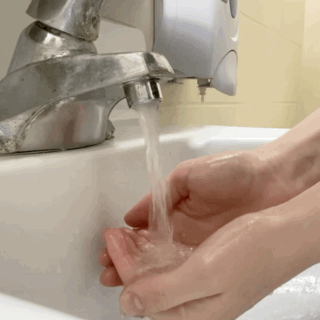Local governments are trying to balance how to collect taxes during COVID-19 while also taking into account what can be paid.
For an Illinois county, property taxes are a major source of revenue. They’re also one that county government has the authority to directly collect. Ogle County Treasurer Linda Beck said the money goes to both the county and other parties.
“We do them every 30 days out to the taxing bodies, which mean your schools, your cities, your townships.”
Normally after mailing out bills, the county would start collecting these taxes in June. But Beck said they were deferred because of COVID-19.
“If it was normal schedule, it would have been in probably June 5th or June 12th, so we set the first installment as July 1st and our second installment as September 11th."
Even with the delay, Ogle County has already collected about 55% of its property taxes. Beck said this matches up with how much they collected last year. She noted that other counties have used different ways to ease the burden on taxpayers.
“I think some other counties have waived that first installment penalty for 30 days or 60 days, but I don’t see where with what we have collected, where it’s been a real struggle with Ogle County.”
Beck said what’s more uncertain at her level are the county’s share of tax revenue that comes from the state.
“I’m just curious about now within the next month or so what the income tax will be, other sales tax, if they’re going to drop drastically. It’s now just starting to hit us too.”
This also affects municipal governments. Rochelle City Manager Jeff Fiegenschuh said it’s hard to tell what effect COVID-19 has had on some taxes. This is because taxes collected by the state are remitted to local governments two months later.
“Our April sales tax was off $10,000 from last year so, so far, our revenues have not taken a big hit," he said. "But we’ve only seen one month of actual revenue collected when the pandemic started."
To address less money coming into households and businesses, he said the City took several different measures. These include waiving late fees for their local electrical utility and changing the eligibility requirements for a low-income assistance program for that utlility.
“The maximum you were able to get last year was $300.00 and it was based on you had to be at 150% of the poverty level," he said. "City Council increased that to a maximum of $500 and they increased the income limit to 200% so we could try to give more people assistance.”
Other examples include the city council setting aside $200,000 for a grant program aimed at so-called “nonessential” businesses.
“They were $5,000 grants and the businesses could use those grants for utilities or back rents or taxes or all those expenses that continue to accrue even if you’re not open.”
Fiegenschuh said Rochelle was also fortunate in another way.
“A lot of our large sales tax generators in Rochelle were deemed essential like the hardware stores and Wal-Mart and the car dealerships," he said. "So we didn’t have a mall or anything like that that was forced to shut down which in normal times would generate huge sums of sales tax revenue.”
But that doesn’t mean any of these parties are out of the woods when it comes to finance. Tricia Herrera, the executive director of the Rochelle Chamber of Commerce, explained.
“We don’t have a time frame on when this is all going to be over," she said. "So they’re trying to do things in long range. How do I sustain this? How do I pay my bill in the long range, not just immediate?”
For county and local governments, that means juggling how to balance their budgets while maintaining services. For businesses, it means keeping up with regular expenses. Herrera said some measures have helped.
“You can’t suspend all of those types of things, but you can do what you can, the City of Rochelle has, to ease the burden on business owners."
But the long-term trajectory of revenue, what aid will come in from the state, and how the pandemic will change these two factors, all remain uncertain.


